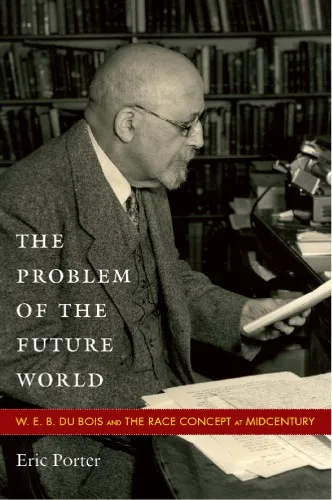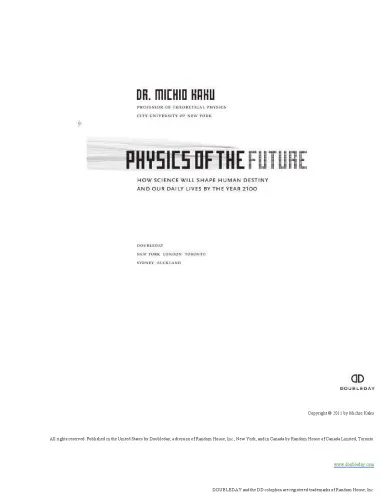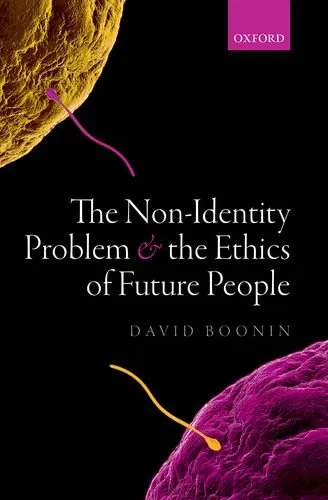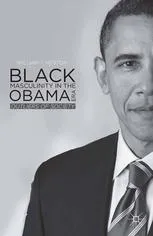The Problem of the Future World: W. E. B. Du Bois and the Race Concept at Midcentury
4.5
بر اساس نظر کاربران

شما میتونید سوالاتتون در باره کتاب رو از هوش مصنوعیش بعد از ورود بپرسید
هر دانلود یا پرسش از هوش مصنوعی 2 امتیاز لازم دارد، برای بدست آوردن امتیاز رایگان، به صفحه ی راهنمای امتیازات سر بزنید و یک سری کار ارزشمند انجام بدینکتاب های مرتبط:
معرفی کتاب
کتاب The Problem of the Future World: W. E. B. Du Bois and the Race Concept at Midcentury نوشته اریک پورتر، اثری عمیق و تأثیرگذار است که به بررسی مفاهیم نژاد، عدالت اجتماعی، و سیاستهای جهانی در میانه قرن بیستم میپردازد. این کتاب از دیدگاهی تحلیلی و تاریخی به آرای W.E.B. Du Bois، یکی از برجستهترین متفکران آفریقایی-آمریکایی قرن گذشته، نگاه میکند. در ادامه، خلاصهای مفصل از کتاب، نکات کلیدی، نقلقولهای مشهور و دلایل اهمیت این اثر بررسی میشوند.
خلاصه کتاب
کتاب اریک پورتر به دقت آرای W.E.B. Du Bois را در دورانی که جهان شاهد تحولات عظیم اجتماعی، فرهنگی و سیاسی بود، بررسی میکند. نویسنده به کنکاش در افکار و نوشتههای دو بوا میپردازد و نشان میدهد که چگونه مفهوم نژاد در کارهای او نه تنها به عنوان مسئله اجتماعی ایالات متحده، بلکه به عنوان دغدغهای جهانی مطرح میشود.
دو بوا در این برهه، مفهوم "مسئله رنگینپوستان" را با مسائل گستردهتر استعمار، امپریالیسم و نابرابری اقتصادی جهانی مرتبط میداند. پورتر با استفاده از تحلیلهای فرهنگی و تاریخی پیچیده، نشان میدهد که چگونه دو بوا در نوشتههای خود، از جمله خطابهها و آثار پژوهشی، این موضوعات را به چالش میکشد.
نکات کلیدی
- رویکرد فراگیر Du Bois به مفهوم نژاد و ارتباط آن با مسائل جهانی.
- بررسی دیدگاههای دو بوا درباره عدالت اجتماعی و مبارزه با استعمار.
- نقد نظامهای سلطهگر و ساختارهای امپریالیستی جهانی.
- ارتباط آرای دو بوا با موضوعات معاصر، از جمله مهاجرت و جنبشهای مدنی.
نقلقولهای مشهور از کتاب
"مسئله اصلی قرن بیستم، مسئله خطوط رنگ است، اما این خطوط محدود به یک ملت یا منطقه نیست؛ این یک پدیده جهانی است که باید در تمامی زمینهها بررسی شود."
"برای تحقق دنیایی عادلانهتر، باید از ساختارهای قدرتی که بر اساس نابرابری بنا نهاده شدهاند، عبور کنیم."
چرا این کتاب مهم است
این کتاب نه تنها به عنوان یک تحلیل عمیق از آثار W.E.B. Du Bois شناخته میشود، بلکه گامی اساسی در فهم ارتباط مفاهیم نژاد، استعمار و جهانیسازی است. اریک پورتر با بهرهگیری از متدولوژیهای پیشرفته در حوزه تاریخ فرهنگی و علوم اجتماعی، بینشی یگانه در رابطه با نگرانیهای جهانی معاصر ارائه میدهد. این کتاب ابزاری ارزشمند برای پژوهشگرانی است که به مطالعه مسائل نژادی و عدالت علاقهمندند.
ارزش این کتاب در این است که علاوه بر بررسی تاریخی مفاهیم، گفتمانهای جدیدی را برای اندیشمندان، کنشگران و خوانندگان عادی فراهم میسازد. خواندن این اثر برای هر کسی که دغدغه ایجاد تغییر مثبت در دنیای کنونی را دارد، ضروری است.
Introduction to 'The Problem of the Future World: W. E. B. Du Bois and the Race Concept at Midcentury'
"The Problem of the Future World: W. E. B. Du Bois and the Race Concept at Midcentury" delves into the influential and thought-provoking work of W. E. B. Du Bois during a transformative era in global history. By focusing on Du Bois’s intellectual and political contributions in the middle decades of the 20th century, this book explores his nuanced understanding of race, a concept that remained central to his scholarship and activism throughout his life. This deeply researched text sheds light on Du Bois’s evolving approach to the intersections of race, politics, colonialism, and global crises, offering critical insights relevant to contemporary discussions of racial justice and equality.
Set against the backdrop of midcentury geopolitical change, including decolonization efforts, the rise of the civil rights movement, and the intensification of Cold War tensions, the book examines the ways in which Du Bois grappled with the "problem of the future world." His reflections on the role of race in shaping societies, both historically and in the imagined future, serve as a call for collective action, deeper understanding, and tangible progress. Through his writings, speeches, and activist work during this era, Du Bois contributed to an intellectual framework that continues to resonate today.
This comprehensive study offers readers a unique opportunity to critically engage with key debates surrounding race, power, and justice in Du Bois’s midcentury work, while connecting these ideas to broader global challenges. Below, let us explore the key aspects of the book in greater detail.
Detailed Summary
The book examines W. E. B. Du Bois’s response to changing global dynamics between the 1930s and 1960s, a period marked by major upheavals ranging from World War II to the rise of movements demanding independence and equality around the world. It situates Du Bois as not only a pivotal figure in African-American history but also as a transnational thinker who critically interrogated the meaning and implications of race in a rapidly shifting global order.
Through his essays, books, speeches, and advocacy work, Du Bois reframed race as a global phenomenon rather than a local or national issue. His reflections on colonialism, capitalism, socialism, and their impacts on racial hierarchies allowed him to engage directly with the pressing concerns of his time. In doing so, Du Bois articulated a vision of the future where race would no longer define human potential or social harmony.
This work thoroughly explores several key aspects of Du Bois’s thought during this era, including his calls for Pan-African unity, critiques of Western imperialism, and engagement with socialism as a solution to systemic inequality. It highlights how Du Bois’s intellectual development paralleled and intersected with broader political struggles, making his ideas and strategies remarkably prescriptive for addressing the racial and economic crises of both his time and ours.
Key Takeaways
- W. E. B. Du Bois redefined the concept of race as a global framework, emphasizing its relationship to colonialism, capitalism, and imperialism.
- The book demonstrates how Du Bois engaged with socialism, decolonization, and Pan-Africanism as strategies for overcoming systemic racial oppression.
- Du Bois’s midcentury writings reflect his concern for the "future world," where humanity would need to confront deep interconnections between race, class, and geopolitics.
- Through his intellectual work, Du Bois encouraged collective and systemic solutions, rather than individual approaches, to dismantle racial hierarchies.
Famous Quotes from the Book
"The future belongs to those who prepare for it today."
"Race is not merely a social construct, but a historical narrative that dictates access to power."
Why This Book Matters
W. E. B. Du Bois’s insights continue to resonate in today’s sociopolitical landscape, where race remains a critical factor in shaping global inequalities and social hierarchies. By examining Du Bois’s responses to midcentury events, the book provides a roadmap for understanding how race operates within larger systems of power and influence. Moreover, the text invites readers to consider how historical frameworks of race continue to impact contemporary social and political issues.
This book is essential reading for those interested in African-American history, critical race theory, political activism, and global struggles for justice. It emphasizes the need for collective action and systemic change, principles that are as urgent today as they were in Du Bois’s lifetime. Through this careful study of Du Bois’s midcentury thought, readers are challenged to rethink their own understanding of race, history, and the future we seek to create.
دانلود رایگان مستقیم
شما میتونید سوالاتتون در باره کتاب رو از هوش مصنوعیش بعد از ورود بپرسید
دسترسی به کتابها از طریق پلتفرمهای قانونی و کتابخانههای عمومی نه تنها از حقوق نویسندگان و ناشران حمایت میکند، بلکه به پایداری فرهنگ کتابخوانی نیز کمک میرساند. پیش از دانلود، لحظهای به بررسی این گزینهها فکر کنید.
این کتاب رو در پلتفرم های دیگه ببینید
WorldCat به شما کمک میکنه تا کتاب ها رو در کتابخانه های سراسر دنیا پیدا کنید
امتیازها، نظرات تخصصی و صحبت ها درباره کتاب را در Goodreads ببینید
کتابهای کمیاب یا دست دوم را در AbeBooks پیدا کنید و بخرید
1367
بازدید4.5
امتیاز0
نظر98%
رضایتنظرات:
4.5
بر اساس 0 نظر کاربران
Questions & Answers
Ask questions about this book or help others by answering
No questions yet. Be the first to ask!














